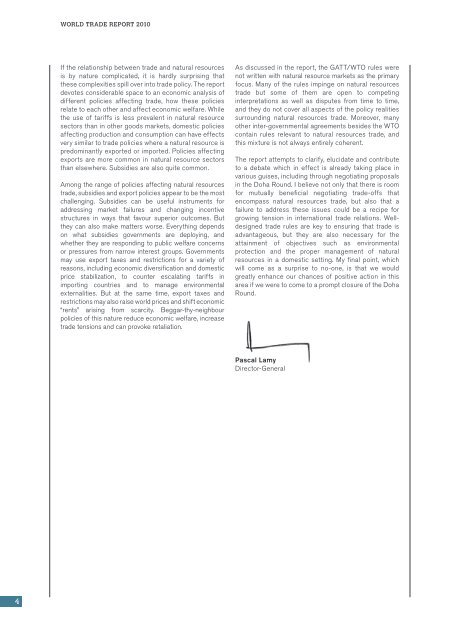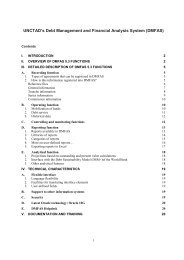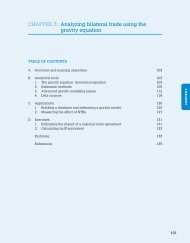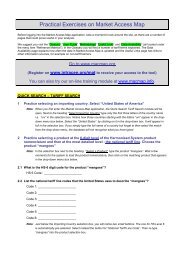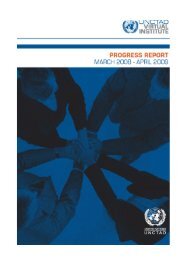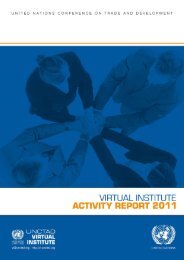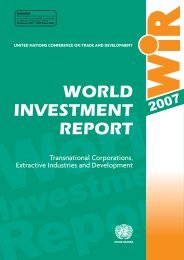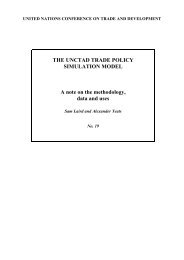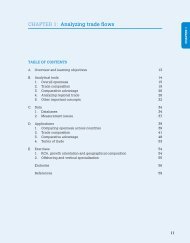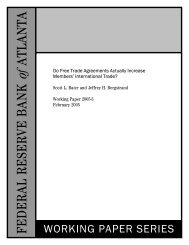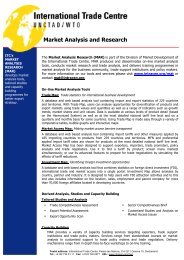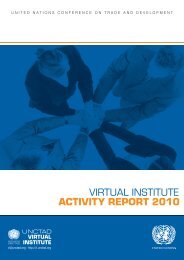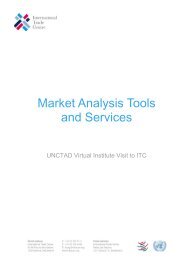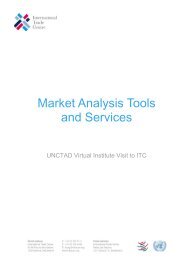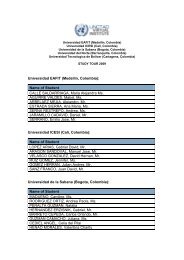WTO: World Trade Report 2010 - World Trade Organization
WTO: World Trade Report 2010 - World Trade Organization
WTO: World Trade Report 2010 - World Trade Organization
Create successful ePaper yourself
Turn your PDF publications into a flip-book with our unique Google optimized e-Paper software.
world trade report <strong>2010</strong><br />
If the relationship between trade and natural resources<br />
is by nature complicated, it is hardly surprising that<br />
these complexities spill over into trade policy. The report<br />
devotes considerable space to an economic analysis of<br />
different policies affecting trade, how these policies<br />
relate to each other and affect economic welfare. While<br />
the use of tariffs is less prevalent in natural resource<br />
sectors than in other goods markets, domestic policies<br />
affecting production and consumption can have effects<br />
very similar to trade policies where a natural resource is<br />
predominantly exported or imported. Policies affecting<br />
exports are more common in natural resource sectors<br />
than elsewhere. Subsidies are also quite common.<br />
Among the range of policies affecting natural resources<br />
trade, subsidies and export policies appear to be the most<br />
challenging. Subsidies can be useful instruments for<br />
addressing market failures and changing incentive<br />
structures in ways that favour superior outcomes. But<br />
they can also make matters worse. Everything depends<br />
on what subsidies governments are deploying, and<br />
whether they are responding to public welfare concerns<br />
or pressures from narrow interest groups. Governments<br />
may use export taxes and restrictions for a variety of<br />
reasons, including economic diversification and domestic<br />
price stabilization, to counter escalating tariffs in<br />
importing countries and to manage environmental<br />
externalities. But at the same time, export taxes and<br />
restrictions may also raise world prices and shift economic<br />
“rents” arising from scarcity. Beggar-thy-neighbour<br />
policies of this nature reduce economic welfare, increase<br />
trade tensions and can provoke retaliation.<br />
As discussed in the report, the GATT/<strong>WTO</strong> rules were<br />
not written with natural resource markets as the primary<br />
focus. Many of the rules impinge on natural resources<br />
trade but some of them are open to competing<br />
interpretations as well as disputes from time to time,<br />
and they do not cover all aspects of the policy realities<br />
surrounding natural resources trade. Moreover, many<br />
other inter-governmental agreements besides the <strong>WTO</strong><br />
contain rules relevant to natural resources trade, and<br />
this mixture is not always entirely coherent.<br />
The report attempts to clarify, elucidate and contribute<br />
to a debate which in effect is already taking place in<br />
various guises, including through negotiating proposals<br />
in the Doha Round. I believe not only that there is room<br />
for mutually beneficial negotiating trade-offs that<br />
encompass natural resources trade, but also that a<br />
failure to address these issues could be a recipe for<br />
growing tension in international trade relations. Welldesigned<br />
trade rules are key to ensuring that trade is<br />
advantageous, but they are also necessary for the<br />
attainment of objectives such as environmental<br />
protection and the proper management of natural<br />
resources in a domestic setting. My final point, which<br />
will come as a surprise to no-one, is that we would<br />
greatly enhance our chances of positive action in this<br />
area if we were to come to a prompt closure of the Doha<br />
Round.<br />
Pascal Lamy<br />
Director-General<br />
4


